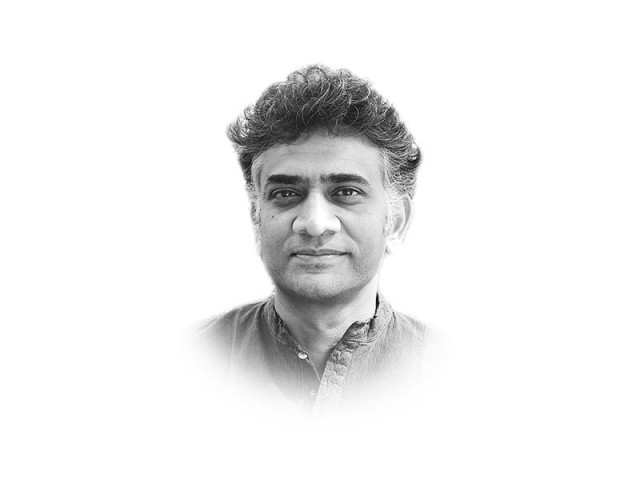BJP & religious harmony
We have finally heard Modi, his stance. We must now anticipate the same language from his subordinates, Sangh Parivar

The writer is the editor and translator of Why I write: Essays by Saadat Hasan Manto, published by Westland in 2014. His book, India, Low Trust Society, will be published by Random House
aakar.patel@tribune.com.pk
To this Singh replied that the BJP did not need to always talk aggressively. The people to listen to were its supporters. What sort of language was being used on the ground? That was more important than the homilies that the most senior party men offered to the media. On the ground, it was pure venom, he said. I was reminded of this on hearing Prime Minister Narendra Modi’s fine words this week on harmony and tolerance. Modi went out of his way and attended a church function amid news that in Delhi, acts of vandalism against churches were rising. He said warm things about two Indians from Kerala who were elevated to sainthood, Kuriakose Elias Chavara and Euphresia.
Modi said of one of them, Chavara, that “in an era when access to education was limited, he stressed that every church should have a school. He thus opened the doors of education to people from all sections of society.”
Showing off his impressive knowledge of Sanskrit, Modi reeled off lines which preach openness and tolerance. He also quoted Swami Vivekananda’s line on Hindus believing not only in universal tolerance, but acceptance that all religions are true.
When I had interviewed Modi once many years ago and brought up this subject, he had been guarded. He told me he did not want to speak about tolerance and insisted that we should instead look at Hindu acceptance because tolerance was a step below it. In the speech at the Christian function, he departed from this formulation and said a few things quite clearly, which are important to recount. His words were:
“We consider the freedom to have, to retain, and to adopt, a religion or belief, is a personal choice of a citizen.
“My government will ensure that there is complete freedom of faith and that everyone has the undeniable right to retain or adopt the religion of his or her choice without coercion or undue influence. My government will not allow any religious group, belonging to the majority or the minority, to incite hatred against others, overtly or covertly. Mine will be a government that gives equal respect to all religions.”
It was important that it be spelled out with such clarity. Modi has claimed he was offended by members of his cabinet and his party and his allies in the Sangh Parivar when they made some remarks on this subject. If that sort of language repeats itself, the media will have a reference point in this speech and can hold him to account.
This speech came out of an aspect of Modi’s personality that does not often reveal itself. It is his Gujarati spirit, which seeks compromise and looks at benefit rather than sticking stubbornly by ideology. Modi shows this side regularly when he deals with development issues, where he has totally undermined and dismantled the RSS economy ideology as sketched out by the ideologue, D D Upadhyay. Modi rarely expresses himself on matters of faith relations, and that is why this speech was important.
We have finally heard the leader and know where he stands. We must now anticipate that the same language and the same reaching out happen from his subordinates and others in the Sangh Parivar. It is, as Singh had observed all those years ago, pointless to be told pacifying words by leaders when the followers carried out business as usual on the ground.
Published in The Express Tribune, February 22nd, 2015.
Like Opinion & Editorial on Facebook, follow @ETOpEd on Twitter to receive all updates on all our daily pieces.















COMMENTS
Comments are moderated and generally will be posted if they are on-topic and not abusive.
For more information, please see our Comments FAQ